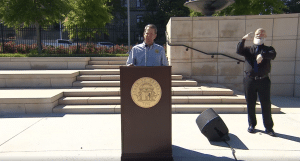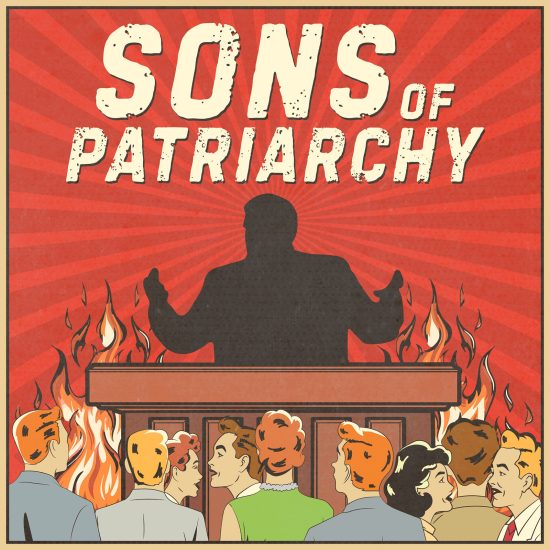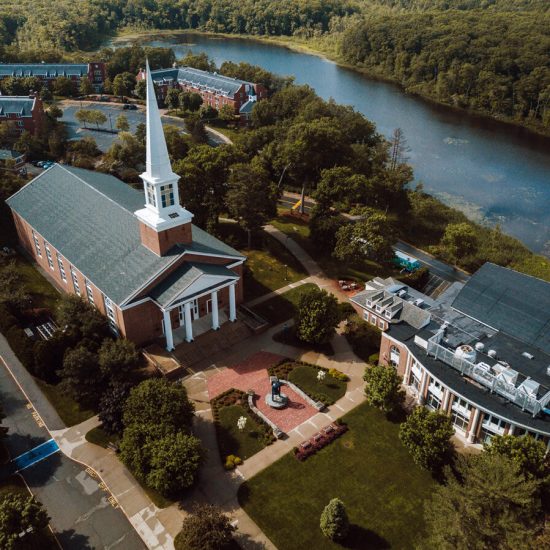
As churches across the country started suspending in-person services in March, most did so without even being banned by local or state officials. Now that many of those same politicians are reopening states and saying churches can again meet in person, many churches remain hesitant to rush back into their sanctuaries since the risk of coronavirus remains. Pastors in Georgia particularly spoke out over the weekend as the state led the country in reopening amid the coronavirus pandemic.
As of April 28, more than 3.1 million people globally have been infected with the COVID-19 respiratory disease caused by coronavirus, and more than 215,000 have died. In the U.S., the country with the highest number of infected persons and deaths, more than 1 million have tested positive and more than 58,000 have died.
Several states starting partially reopening on Friday (April 24) as governors lifted stay-at-home orders and mass gathering bans. States that have already started reopening include Alaska, Colorado, Georgia, Minnesota, Mississippi, Montana, Oklahoma, South Carolina, and Tennessee. Governors in numerous other states have announced reopening to start at the end of April or in the first few days of May.
However, according to the data modeling by the Institute for Health Metrics and Evaluation at the University of Washington, no states should be ready to reopen yet as the outbreak hasn’t sufficiently reduced yet. Reopening too early could spark a new wave of infections and deaths.

Screengrab of Georgia Governor Brian Kemp during an April 20 press conference.
Even as governors say churches can reopen, that doesn’t mean they must. Many pastors and denominational leaders are speaking out to say it’s still too soon to crowd back into sanctuaries. Religious leaders in Georgia particularly spoke out as that state led the nation in reopening on Friday, even after President Donald Trump criticized the state’s Republican governor, Brian Kemp, for reopening too much too quickly.
The Catholic bishops of Georgia announced on April 23 that they “must yet maintain the current practice of sheltering in place” at least through May. Their letter referenced IHME data and noted many priests and congregants are in “the high-risk category for this virus.”
Similarly, Reginald Jackson, presiding prelate of the Sixth Episcopal District of the African Methodist Episcopal, argued in an April 21 statement that “coronavirus is still raging, and it has already caused sickness and death among our congregations.” Black Americans, like those in the AME denomination, have been disproportionately impacted by coronavirus.
“There is no need to increase the possibility of more sickness and death by gathering prematurely. We absolutely must increase testing, and flatten the curve before we begin to gather again,” he added as he called on churches to not meet yet.
Leaders in the North Georgia Conference of the United Methodist Church said in an April 27 statement that churches should not gather in person until at least June 22. The district’s bishop, Sue Haupert-Johnson explained the decision came “after talking with medical experts and reviewing data.”
Many Baptists in Georgia have also suggested against restarting in-person services yet, though no bishop exists to make that decision for multiple congregations.
Paul Baxley, executive coordinator of the Cooperative Baptist Fellowship, told Word&Way that theologically the churches never shut down and therefore don’t need encouragement from governors to reopen. CBF is headquartered in Decatur, Georgia, and Baxley previously pastored in the state.
“In these times, we must absolutely affirm that the Church of Jesus Christ does not need to participate in a re-opening strategy because we have never been closed. If the Easter miracle doesn’t teach us anything else, it tells us that we cannot be shut down,” he said.
“During these past five weeks, I do not know of a single Cooperative Baptist Fellowship congregation that has closed its doors,” Baxley added. “Instead, I know that an overwhelming number of our pastors and lay leaders have worked courageously, dreamed remarkably, led hopefully, and modeled the kind of agility that characterized the early church in Acts. Our congregations have continued to worship, study, pray, and serve, just in powerfully innovative ways.”
Numerous Southern Baptist congregations in Georgia have also expressed concerns about restarting in-person services at this time.
“We are not wanting our passion to exceed wisdom,” Wayne Robertson, pastor of Morningside Baptist Church in Valdosta told Baptist Press. “We are trying our best to walk with that as faithfully as we know how.”
Hans Wunch, Mallary Baptist Association director of mission, similar told Baptist Press that many churches in the association don’t have the facilities necessary to safely socially distant for in-person services.
“When you’re singing, six feet may not be enough,” Wunch said, “because you’re projecting and water comes out of your mouth as you sing.”
Georgia pastors in the National Baptist Convention USA echoed these sentiments. The Baptist Ministers Conference of Augusta held a press conference April 24 to speak against the governor’s decision to reopen the state. The association’s president, Anthony Booker, called for “solidarity among pastors and people” in not reopening churches too soon.
“I think today says that from Augusta and all across the state today, pastors are gathering to say that yes we love you, yes we’re in support of you, yes we want to be at worship,” he said, “’but first and foremost, your health is important to us.”“I’d rather preach over you living, than preach over you dead,” he added.
Reports indicate most churches followed the advice of these religious leaders, with only a few congregations resuming in-person services two days after the governor eased restrictions. The debate, however, is quickly spreading to other states as more governors lift bans on mass gatherings.
A conservative Christian law firm is promoting May 3 as “ReOpen Church Sunday” as they call on churches to resume in-person services. The firm, Liberty Counsel, has represented a Florida pastor arrested for violating a mass gathering ban by holding large worship services. The group is associated with Liberty University, a school criticized for not closing its campus during the pandemic.
“Because you had one choir somewhere in the United States that sang together closely and some people got COVID-19 is no reason to punish the rest of the 500,000 churches,” Liberty Counsel founder Matt Staver said as he alluded to a coronavirus outbreak in Washington but ignored dozens of similar church-related hotspots across the country.
But even as some push for churches to reopen, what occurred in Georgia is continuing across the country as many religious leaders instead urge caution and patience. The heads of seven black denominations in the U.S. released a statement April 24 urging “all black churches and businesses to remain closed during this critical period.” The letter’s signers included leaders of the National Baptist Convention of America, National Baptist Convention USA, and Progressive National Baptist Convention.
“Our families need us. Our communities need us,” the leaders added. “We must continue to telework wherever possible, and to tele-worship for however long it is necessary to do so.”






